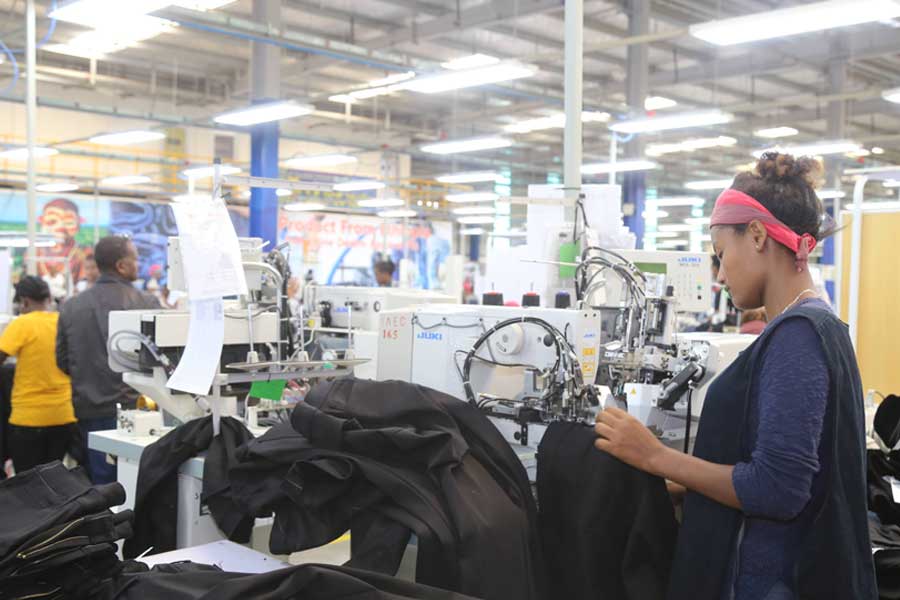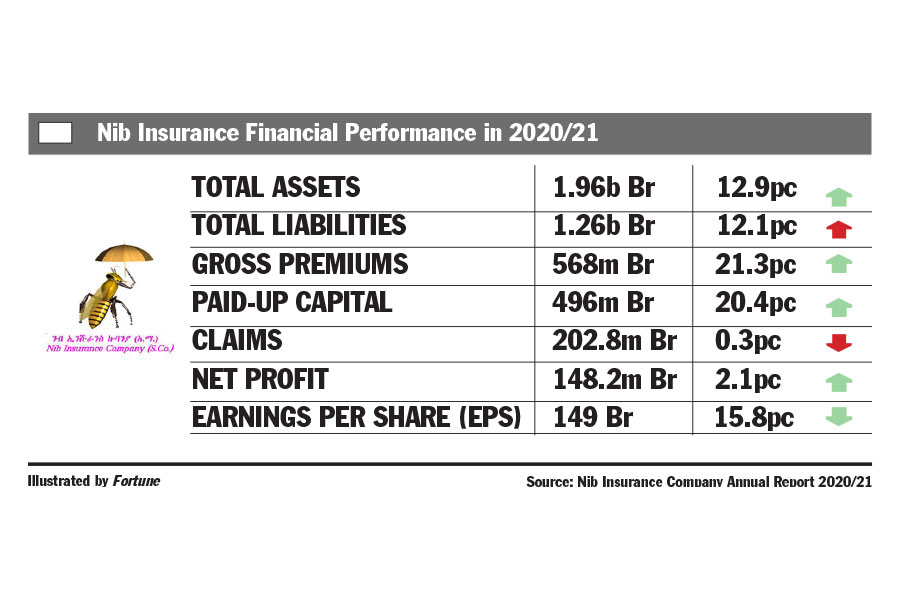
Agenda | Nov 14,2020
Minister of Finance Ahmed Shide has intensified efforts to enforce mandatory domestic procurements across federal government institutions. He issued directives to 169 federal agencies two weeks ago, urging them to prioritise local suppliers and swiftly dispose of outdated equipment, to boost economic growth and promote domestic industry. Underpinning this initiative is a broader strategy targeting import substitution and public property management.
Price ceilings for domestic procurements have been raised to a staggering 150 million Br, signalling the support for local industries while construction projects have a ceiling of up to 600 million Br.
For Eyob Tekalegn (PhD), state minister for Finance, the importance of aligning import substitution goals with the country's evolving economic policy, particularly under the second Homegrown Economic Reform Agenda, is essential. He said local manufacturing role is paramount to achieve broader macroeconomic objectives.
"Structural changes are crucial to meet import substitution targets," Eyob told Fortune.
Government is the country's largest buyer of goods and services, with annual expenditures totalling close to 150 billion Br. However, a significant portion of these procurements involve international suppliers.
The electronic procurement system introduced three years ago, has also become compulsory for most public purchases and is deemed as vital for reducing corruption and speeding up procedures. Nearly 70 institutions engaged in e-procurements last year, with bids totalling over 42 billion Br. The shift is projected to reduce expenditures by an average of 6.57pc, illustrating the cost-saving benefits.
However, most foreign companies participate in government procurements through arrangements with local firms, which result in additional commissions and service fees being tacked onto the final price of products.
Gebeyaw Yitayew, head of the Public Procurement & Property Authority, stresses the importance of transparency and fair competition in creating a procurement landscape conducive to supporting local industries. He believes introducing a mandatory e-procurement system has played a vital role in reducing corruption.
"It helps manage public resources efficiently," he said.
The Ministry of Industry plans to conduct a comprehensive study aimed at assessing the capacities of local manufacturers and their ability to meet the requirements for government purchases. Netsanet Abebe, the Ministry's head of Chemical Products Promotion & Competitiveness, highlights the need to increase the productive capacity of local manufacturers. Many firms operate below their full capacity, facing stiff competition from foreign counterparts.
"Industries have barely reached their potential," she said, highlighting the untapped growth opportunities.
Manufacturers have underperformed for several reasons such as access to forex, crippling their operational capacities. The 'Let Ethiopia Produce' initiative aimed at reviving the sector is considered a step forward by Minister Melaku Alebel who recently appeared before Parliament pushing for government agencies to source at least some of their procurements domestically, a move towards import substitution.
However, experience of other African countries tells a different story. Countries like Ghana, Tanzania, and Zambia, which had once championed industrial import substitution, found themselves in fiscal deficits, escalating external debt, and economic stagnation. A myriad of factors, including geopolitical shifts, inefficiencies, technological stagnation, fiscal burdens, and macroeconomic missteps, influenced the outcome with industries, once shielded by protective policy measures, languished in a state of stagnation, failing to innovate or expand.
While protectionist policies hold promise for nurturing domestic industries, concerns linger over potential compromises in product quality and fair competition. According to Shiferaw Mitiku, a logistics and supply chain management lecturer at Addis Abeba University, while the initiative is exciting, there is room for exploitation of the policy, which may use preferential access to bid and raise prices.
He recommends maintaining a delicate balance between a desire to boost domestic industrialisation and competition with quality foreign products.
"Healthy competition is beneficial," he said.
Manufacturers are upbeat. Awash Melkassa Chemical Factory, a chemical producer with an annual output of 36,000tns, finds its warehouses filled to the brim with hydrogen peroxide, aluminium sulfate, and sulfuric acid. While claiming to offer quality products, the company continues to lose ground to international competitors.
Ahmed Motuma, the Company's General Manager, voices frustration over government agencies' reluctance to embrace domestic products from local chemical producers.
"We've felt the impact of being consistently overlooked," he said.
Ahmed took the concern to the Ministry several months ago, highlighting their dwindling access to government contracts. He expresses relief, stating, a significant uptick in production capacities and market share for local manufacturers: "Our prayers have been answered."
New procurement rules did not shake up those already getting a slice of the pie like Repi Soap & Detergent Plc, in business for over 50 years. With a 48,000tns annual production, the Company had gained good momentum over the years supplying its products to different public agencies.
On the other hand, Beta Lab, a chemical and lab equipment supplier, is reliant on imports for their wide selection of chemicals and equipment from Chinese and Switzerland manufacturers such as BIOBASE and Mettler Toledo. General Manager Dawit Gebremarim said the dearth of manufacturers, and the absence of standards in their domestic products, will not affect their market share.
"We're not apprehensive at all," he said.
Government agencies frequently justify their preference for foreign companies in procurement by citing concerns about quality. Ethiopian Construction Authority, responsible for overseeing 5,000 federal projects across the country, involving substantial procurements worth hundreds of millions of birr, seldom collaborates with domestic contractors.
According to Abebe Banjaw, the Authority's Building Regulation deputy head, the absence of adequate standards for locally produced materials is the primary reason behind the lack of trust.
"Most materials don't meet the requirements," he told Fortune.
Ethiopian contractors currently account for a mere three percent of federal projects in the country. Abebe expressed his dismay towards local contractors, attributing it to a prevalent deficiency in professionalism and technical proficiency. He emphasised that establishing material standards and improving professionalism among contractors are essential steps toward increasing the involvement of local firms in government procurements.
"These factors significantly contribute to project delays," he said.
PUBLISHED ON
Mar 23,2024 [ VOL
24 , NO
1247]

Agenda | Nov 14,2020

Fortune News | Nov 20,2021

Fortune News | Jan 01,2022

Radar | May 28,2022

Advertorials | Feb 12,2024

My Opinion | Feb 11,2023

Radar | Oct 12,2025

Fortune News | Feb 14,2024

Fortune News | Mar 13,2021

Fortune News | Jun 12,2025

Dec 22 , 2024 . By TIZITA SHEWAFERAW
Charged with transforming colossal state-owned enterprises into modern and competitiv...

Aug 18 , 2024 . By AKSAH ITALO
Although predictable Yonas Zerihun's job in the ride-hailing service is not immune to...

Jul 28 , 2024 . By TIZITA SHEWAFERAW
Unhabitual, perhaps too many, Samuel Gebreyohannes, 38, used to occasionally enjoy a couple of beers at breakfast. However, he recently swit...

Jul 13 , 2024 . By AKSAH ITALO
Investors who rely on tractors, trucks, and field vehicles for commuting, transporting commodities, and f...

Nov 1 , 2025
The National Bank of Ethiopia (NBE) issued a statement two weeks ago that appeared to...

Oct 25 , 2025
The regulatory machinery is on overdrive. In only two years, no fewer than 35 new pro...

Oct 18 , 2025
The political establishment, notably the ruling party and its top brass, has become p...

Oct 11 , 2025
Ladislas Farago, a roving Associated Press (AP) correspondent, arrived in Ethiopia in...